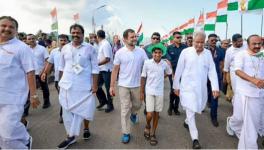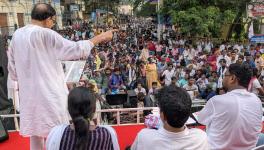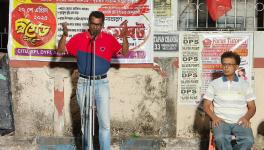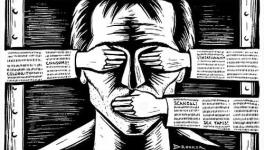Temple-Mosque Debate has Taken a Big Toll on Ayodhya and its Residents
The aftermath of the Babri mosque demolition by Kar Sevaks on December 6, 1992, had a huge impact on the lives of Muslim families in Ayodhya.
Most of the Muslim families living near the disputed site have suffered in the last 26 years and are no longer in love with the city which was once known for communal harmony, even after the Mosque was demolished. But now, Muslims living in the city say they often face abusive remarks and lewd gestures by outsiders visiting Ayodhya.
“Every morning, we wake to devotional bhajans of Lord Rama, which is absolutely fine for us, but the bhajans are then followed by objectionable chants and provocative slogans. We are not against Lord Rama or the construction of a temple, but can't we live in peace? Many a times I do feel that slogans like ‘Jab katuve kaate jayenge to Ram Ram chillayenge’ (derogatory references to Muslims) are raised intentionally to stoke communal riots in our area,” said Gunnaj Ansari.
Thirty-year-old Gunnaj, a mother of three, said Muslims living in the area fear that someday, events like 1992 will be repeated and no Muslim will be left in the temple town.
“Every December 6, and on every Hindu festival, we female members of this disputed place go to our relatives home outside Ayodhya. The studies of our children are affected due to this and we try our best to take our properties and business outside this city because someday a frenzied mob may come and vandalise everything,” she said with anger and despair.
Gunnaj said last October, her elder son was expelled from school for abstaining too much. Many Hindu festivals are celebrated in October and a large number of Hindu devotees from every part of the country arrive in Ayodhya.
“Chief Minister Yogi Adityanath celebrated Deepotsav and a large number of people visited the city. During that period, we shifted to Gorakhpur for our own safety. My son could not go to school for more than 10 days in a row and was expelled. I am fine with it because life is more precious than education. Since then my son has started going to a Madarsa. I wanted him to be a doctor but I will be satisfied even if he becomes a daily wager but a good human being,” she said.
“We want to live in peace, and we want respect too,” she added.
Akhtar Ali Mukhiya, a 60-year-old cloth trader, sold all his properties in Ayodhya at throw-away prices fearing a sudden outbreak of riots.
“My father had many properties in this town but I have sold them all at peanut prices because you never know when things will turn from bad to worse. And history repeats itself – we should not forget this,” he said.
Mukhiya further mentioned that although local residents of Ayodhya are generally very good and have nothing against the Muslim community, a few of them show their true colours when people from outside Ayodhya come and spread communal hatred. He is left with only one house and a cloth shop, and has settled his five children outside Ayodhya. He has also planned to shift to the Barabanki district.
Hafizurr Rehman, 48, is a tailor and one of the survivors of the Babri mosque demolition riots. He said he was fed up of the temple-mosque politics and wanted to shift somewhere else.
“My father and brother were killed in the deadly riots by Kar Sevaks. My wife was six months pregnant and suffered a miscarriage. I have seen it all. I am financially weak otherwise I would have shifted to some other place. I have been trying to sell my house for the last many years but there are no buyers,” he said.
The lives of the Hindus living in the area have also been affected.
Chunky Pandey, 33, a diver and prasad seller at Saryu Ghat, said to the outside world Ayodhya might appear to be a place where there is communal harmony but the hard-line (kattar) Hindu leaders are trying to divide the society by politicizing the Babri issue.
“What is the need of shouting anti-Muslim slogans here when you have come to visit the Ram Lalla temple? You shout slogans and then the situation gets tense. In that type of situation we also keep our shops closed and don't send our kids to school,” he said.
“Aap bahar se aakar zeher ghol kar chale jate ho. Pareshaan to Ayodhya ka local aadmi hi hota hai na chahe wo Hindu ho ya Musalman, (You outsiders come and spread poison. But it is a hassle for the locals, be it a Hindu or Muslim)” Pandey said.
According to Ashish Singh, a political observer based in Ayodhya, the aftermath of Babri demolition has had both positive and negative effects on the city, but the negative far outweighs the positive.
“On the one hand, you have gained a good number of tourists, but on the other hand, many people have left Ayodhya. Businessmen don't want to invest here. These are big economic losses. You need to think of these aspects also besides the temple-mosque issue,” Singh said.
Get the latest reports & analysis with people's perspective on Protests, movements & deep analytical videos, discussions of the current affairs in your Telegram app. Subscribe to NewsClick's Telegram channel & get Real-Time updates on stories, as they get published on our website.
























